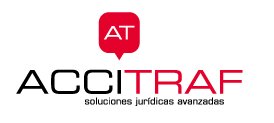Best Structured Finance Lawyers in Salamanca
Share your needs with us, get contacted by law firms.
Free. Takes 2 min.
List of the best lawyers in Salamanca, Spain
About Structured Finance Law in Salamanca, Spain
Structured Finance is a specialized field of law that deals with complex financial transactions, often involving the pooling and repackaging of financial assets such as loans, mortgages, or receivables into securities. In Salamanca, Spain, Structured Finance transactions may include securitizations, collateralized debt obligations, and project financing. The legal framework in Salamanca is shaped both by Spanish national laws and relevant European Union regulations, with additional oversight from local bodies in Castile and León. Engaging with Structured Finance in Salamanca often requires a clear understanding of both financial and legal considerations to ensure compliance, manage risk, and achieve financing goals.
Why You May Need a Lawyer
Structured Finance transactions are typically large-scale and involve intricate agreements among multiple parties. You might require legal assistance in Structured Finance for many reasons, including:
- Structuring a new securitization or asset-backed security
- Reviewing or drafting complex loan agreements
- Navigating the regulatory requirements for cross-border transactions
- Understanding tax implications of Structured Finance deals
- Resolving disputes between involved parties
- Conducting due diligence for acquisitions or investments
- Ensuring consumer protection compliance
Given the high value and complexity of these transactions, experienced legal support is crucial for safeguarding your interests and meeting your financial objectives.
Local Laws Overview
Structured Finance in Salamanca is governed primarily by Spanish national laws, but practitioners must also consider local regulations and EU directives. Key legal aspects include:
- Securitization Law - Spain has specific regulations for the securitization of assets, requiring compliance with reporting, disclosure, and risk retention rules.
- Regulatory Oversight - The Bank of Spain and the Comisión Nacional del Mercado de Valores (CNMV) supervise many Structured Finance activities, especially those involving securities.
- Tax Laws - Tax structuring is critical in these transactions, with particular attention needed for value-added tax (IVA), corporate tax, and stamp duties.
- Contract Law - Spanish contract law governs many agreements within Structured Finance, making it essential to ensure all documentation is in line with local legal standards.
- EU Regulations - European Union rules on capital requirements, anti-money laundering, and consumer protections also play a significant role in Salamanca’s Structured Finance landscape.
Frequently Asked Questions
What is Structured Finance and how does it work in Salamanca?
Structured Finance refers to complex financial instruments and transactions designed to distribute risk and secure funding. In Salamanca, this often involves securitizing assets or pooling loans to create securities that can be sold to investors under Spanish and EU regulations.
Who regulates Structured Finance activities in Salamanca?
Structured Finance is primarily regulated by the Bank of Spain and CNMV, with oversight and specific regulations coming from both national and EU authorities.
What types of assets can be securitized in Spain?
Commonly securitized assets include mortgages, consumer loans, auto loans, commercial receivables, and other financial obligations.
What are the key legal documents in a typical Structured Finance transaction?
Key documents often include the asset transfer agreement, offering circular or prospectus, servicing agreement, and legal opinions on enforceability and compliance.
Are there special tax considerations for Structured Finance in Salamanca?
Yes, tax treatment of securitizations and related transactions can be complex. Careful attention must be paid to corporate tax, VAT, and stamp duty obligations, which may vary depending on the structure and parties involved.
Can foreign entities participate in Structured Finance deals in Salamanca?
Yes, but cross-border transactions must comply with Spanish and EU laws, including currency control, tax, and licensing requirements.
What risks are associated with Structured Finance?
Risks may include credit risk, liquidity risk, legal documentation risk, and regulatory non-compliance, all of which necessitate careful legal and financial due diligence.
How does EU regulation affect Structured Finance in Salamanca?
EU regulations, such as the Securitisation Regulation, impose requirements on transparency, reporting, and investor protection, which apply to many transactions conducted in Salamanca.
Is court intervention common in Structured Finance disputes?
While many disputes are resolved through negotiation or arbitration, legal proceedings may occur if there is a breach of contract or regulatory infraction.
Why is local legal advice important for Structured Finance in Salamanca?
Local legal advisors understand the intricacies of Spanish and EU law, as well as Salamanca’s business environment, ensuring your transaction is structured for legal and tax efficiency while meeting all regulatory requirements.
Additional Resources
For further guidance and information on Structured Finance, consider contacting or researching the following organizations:
- The Bank of Spain
- Comisión Nacional del Mercado de Valores (CNMV)
- Spanish Ministry of Economy and Digital Transformation
- Bar Association of Salamanca
- European Securities and Markets Authority (ESMA)
- Local law firms specializing in Financial and Banking Law
- Chamber of Commerce of Salamanca for business and financial advice
Next Steps
If you need legal assistance in Structured Finance in Salamanca, start by gathering all relevant documents and information about your financial objectives. Contact a qualified lawyer or law firm with expertise in Structured Finance and Spanish financial regulations. An initial consultation will help clarify your options, identify compliance requirements, and set up the necessary transactional framework. Ensure that any legal advisor you consult is licensed to practice in Spain and has experience with the types of transactions you are considering. Being well-prepared and seeking informed counsel is the best way to protect your interests and achieve your financial goals in Salamanca’s structured finance market.
Lawzana helps you find the best lawyers and law firms in Salamanca through a curated and pre-screened list of qualified legal professionals. Our platform offers rankings and detailed profiles of attorneys and law firms, allowing you to compare based on practice areas, including Structured Finance, experience, and client feedback.
Each profile includes a description of the firm's areas of practice, client reviews, team members and partners, year of establishment, spoken languages, office locations, contact information, social media presence, and any published articles or resources. Most firms on our platform speak English and are experienced in both local and international legal matters.
Get a quote from top-rated law firms in Salamanca, Spain — quickly, securely, and without unnecessary hassle.
Disclaimer:
The information provided on this page is for general informational purposes only and does not constitute legal advice. While we strive to ensure the accuracy and relevance of the content, legal information may change over time, and interpretations of the law can vary. You should always consult with a qualified legal professional for advice specific to your situation.
We disclaim all liability for actions taken or not taken based on the content of this page. If you believe any information is incorrect or outdated, please contact us, and we will review and update it where appropriate.











